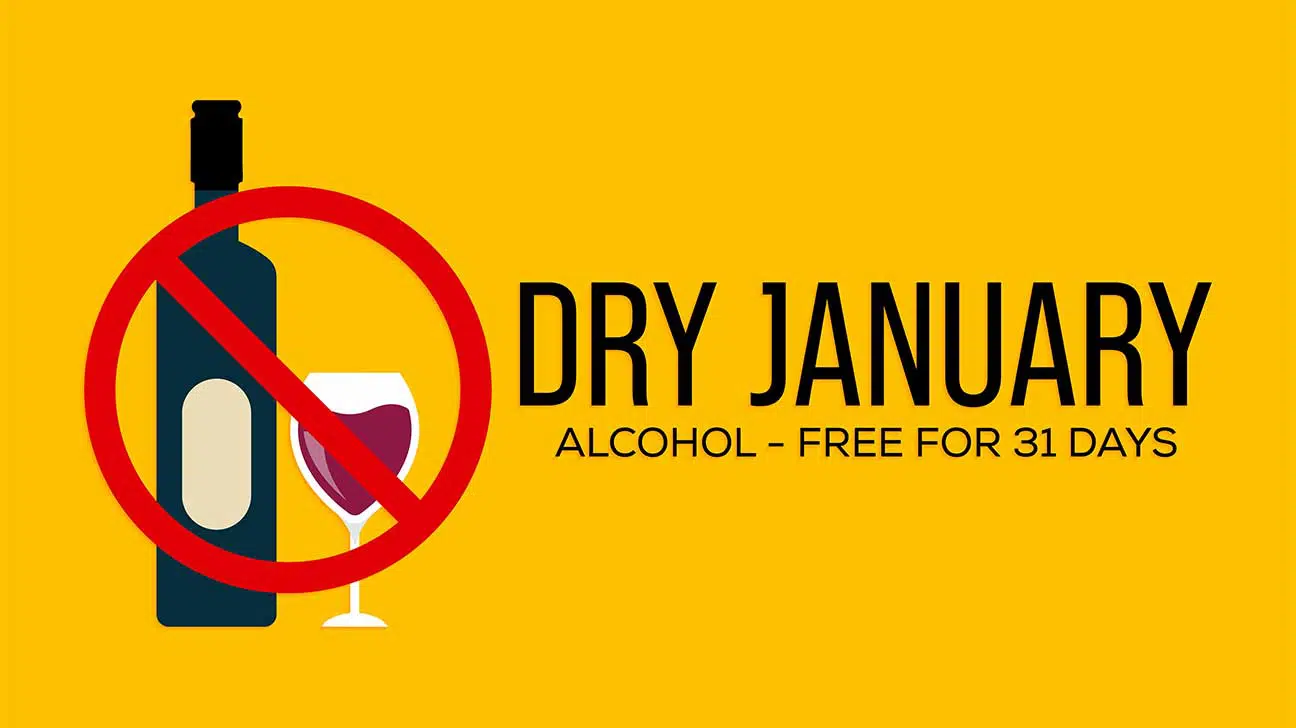
If you committed to Dry January, an alcohol-free month, and you’ve had a drink, don’t give up.
You can pick up new habits and ways of coping with stress or temptation to help you to get through the rest of the month sober.
When it comes to New Year’s resolutions and detox challenges, it’s essential that you give yourself room for failure, because the process is not about perfection, but progress.
In this article, we’ll go over several ways you can respond if you’ve relapsed over Dry January.
Accept The Relapse And Move Forward
Your progress will come to a complete halt if you use words of defeat after having a lapse. Saying things like, “I can’t do this” or “I knew I’d fail” will make it difficult to keep going.
Instead of accepting defeat, recognize it in the moment and move on from it. You can say things to yourself like, “I had a drink, but I’m going to check in with a friend and try again tomorrow.”
It’s important to validate the experience and how you feel after having the drink, then make a plan to move forward and try again.
Reach Out For Help
If you’re isolated, it’s going to be tough to keep up with a goal of sobriety (or any goal, for that matter).
Make sure you tell someone about your commitment to Dry January, the goals you hope to accomplish, and how they can help if you have a drink.
If you are unable to stay sober and you have an alcoholic drink, text or call your friend to talk or meet up in person.
You can also find support groups, counselors, and others who can help.
Alcoholics Anonymous meetings, a 12-step program, can be a good first step if you think you have an alcohol problem and want support.
Find Other Forms Of Fulfillment
You might fall back on alcohol during an effort to stay sober over Dry January because it’s something you typically find comfort in.
But there are so many things you can set your mind to and find fulfillment in. With other activities and passions to turn to, you’ll be less likely to drink.
If you’re not sure where to start, you can begin by determining what your values are and finding activities that match up with those values.
For example, if you value family, you might set up a weekly family dinner. Or, if you value wilderness and adventure, you can sign yourself up for a rock climbing class.
Work On Stress Management
The National Institute on Alcohol Abuse and Alcoholism (NIAAA) explains that general life stress, catastrophic events, childhood stress, and racial/ethnic minority stress can all contribute to alcohol use.
Relationship issues and financial stress can fall under the category of general life stress, which is one of the biggest contributors to casual drinking.
When unpleasant feelings arise or something stressful happens, some people might use alcohol to suppress those negative situations and cope.
If you can learn to deal with this stress — using breathing techniques, going to therapy, talking it out with a friend — you can avoid using alcohol as a coping tool during Dry January.
Be A Designated Driver
Being the designated driver for your friends’ night out can help you to stay focused on sobriety because you have other people depending on you for their safety.
It’s best to avoid situations involving alcohol during Dry January, but if there’s an event you want to attend that does include drinking, offer yourself as the designated driver to keep yourself in check.
Explore Professional Recovery Options
If you’re finding that it’s difficult to get through your day-to-day life without a drink during Dry January, it may be helpful to talk to someone about recovery options.
You can find treatment for men only, treatment for women only, dual diagnosis treatment, and much more.
These programs can help you to get through the rest of dry January and beyond with an outpatient, part-time program or a full-time inpatient program.
Get Help Staying Sober During Dry January
By focusing on self-care and seeking support from loved ones, friends, and professional care providers, you can stay sober during Dry January, even if you’ve had a drink.
Call our helpline for more support, and learn about your alcohol addiction recovery options.


